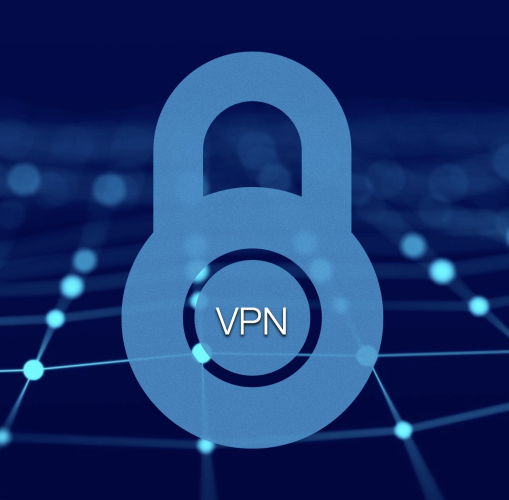
Online privacy and security are of utmost concern these days. Virtual Private Networks (VPNs) have emerged as a popular solution for protecting internet users. But what exactly is a VPN, and how does it benefit users in various scenarios? This article looks at what VPNs are, highlights their advantages, and explores common use cases for the technology.
What is a VPN?
A VPN, or Virtual Private Network, is a technology that establishes a secure and encrypted connection over a public network, typically the internet. It allows users to access the internet as if they were connected to a private network, even while using a public or unsecured WiFi network. The VPN creates a secure tunnel between the user’s device and the VPN server, encrypting all data transmitted through the connection.
VPN Protocols
A VPN protocol is a set of rules and procedures used to establish and manage secure communication between devices over a VPN. It defines how data is encrypted, transmitted, and authenticated during the process of establishing a secure connection between the user’s device and the VPN server. Different VPN protocols offer varying levels of security, speed, and compatibility, allowing users to choose the one that best suits their needs.
VPN protocols determine how data packets are encapsulated and encrypted, ensuring that sensitive information remains protected from potential threats and eavesdroppers while traveling through the internet. The most commonly used VPN protocols include OpenVPN, IPSec, L2TP, PPTP, IKEv2, and SSTP, among others.
When a user connects to a VPN service, the client application on their device negotiates with the VPN server to select the most appropriate protocol for the connection. Factors considered during this negotiation include the level of security required, network environment, and the capabilities of the user’s device and operating system.
Each VPN protocol has its advantages and disadvantages. Some protocols, like OpenVPN, provide strong encryption and high security, making them ideal for privacy-conscious users. Others, such as PPTP, are known for their ease of setup and fast connection speeds but offer lower levels of security. The choice of VPN protocol depends on the user’s specific needs, whether it’s prioritizing security, speed, compatibility, or a combination of factors.
Benefits of VPN
- Enhanced Security and Privacy: One of the primary benefits of using a VPN is the enhanced security and privacy it offers. By encrypting internet traffic, VPNs prevent hackers, cyber criminals, and even Internet Service Providers (ISPs) from monitoring or intercepting users’ online activities. This encryption ensures that sensitive information, such as passwords, credit card details, and personal communications, remains safe from prying eyes.
- Anonymous Browsing: VPNs can also help users maintain anonymity while surfing the internet. By masking their IP address and routing their traffic through the VPN server, users can prevent websites, advertisers, and third parties from tracking their online behavior, providing a shield against invasive data collection.
- Bypassing Geo-restrictions: VPNs enable users to access region-restricted content by connecting to servers in different countries. This capability allows users to enjoy streaming services, websites, and online resources that might be blocked or limited in their own region due to content licensing or government censorship.
- Secure Remote Access: VPNs offer a secure method for remote workers to access their company’s private network and resources. This remote access ensures that employees can work from virtually anywhere while maintaining a high level of data security.
- Protection on Public WiFi: Public WiFi networks are often unsecured, making them hotspots for hackers to exploit vulnerable connections. Using a VPN on public WiFi encrypts data, making it extremely difficult for hackers to intercept or steal sensitive information from unsuspecting users.
Typical Use Cases
VPNs serve a variety of practical purposes in the digital world. Businesses leverage VPNs to create secure communication channels for their offices and remote employees, ensuring the confidentiality of sensitive data and facilitating seamless collaboration across different locations. Additionally, users find value in VPNs for accessing region-specific content, such as streaming services and websites that are restricted in their home country. By connecting to servers in other countries, they can unlock a wider range of content.
VPNs are also popular among individuals engaged in file sharing and torrenting, as these services allow users to maintain anonymity and safeguard their online identity during such activities. Lastly, privacy-conscious individuals rely on VPNs to protect their online privacy and prevent intrusive advertisers, data brokers, and other entities from tracking their internet behavior, resulting in reduced exposure to targeted ads.
Putting VPN to Use
Virtual Private Networks have become a crucial tool for internet users seeking to enhance their online security, protect their privacy, and access content unrestricted by geographic boundaries. With the numerous benefits they offer, VPNs have gained popularity in both personal and professional spheres. However, it is essential to choose a reputable and reliable VPN service provider to ensure the best performance and protection while enjoying the advantages of this valuable technology. Keep in mind that there are also routers that support VPN, meaning it can support your entire network of devices rather than having something running on each individual device.
For more information on routers with VPN compatibility, reach out to the 5Gstore team.

